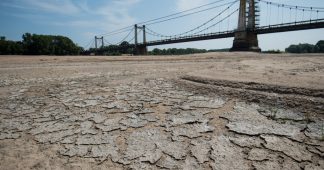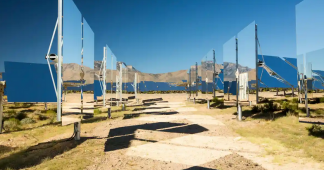by
A nebulous coalition of industry-sponsored players, deregulation lobbyists and the far right has formed to deny or downplay the health impacts of air pollution, just as they did with tobacco and fossil fuels. It’s happening in India, the United States and Europe, France included.
From climate denial to air pollution denial? “The air today is a little bit too clean for optimal health”; “You cannot link early deaths to ozone”; “[if air pollution kills,] where are the bodies?”; “The experts do not agree among themselves about the reality of the health impacts of particulates”; “Air quality has never been as good as it is today”… Just a few phrases gleaned from a scan of the media and social networks in France, the United States and around the world. As the clamour denouncing the death toll from air pollution—estimated at tens of thousands of premature deaths each year— grows, so the forces of reaction are also mustering their cohorts.
This new trend of “air pollution denial” is also manifested in certain “scientific” studies, financed by the motor manufacturers. The New York Times reported a few days ago that a Volkswagen-founded industry body had commissioned researchers to make lab monkeys inhale diesel fumes, with the objective of proving them harmless. Like the emissions tests in the Dieselgate scandal, the vehicle used (a diesel VW Beetle) had been doctored to emit fewer toxic particles in the lab than would occur in real conditions.
“Manufactured doubt”
For years, a coalition of fanatical “lean government” partisans, ultra-conservative propagandists, and industrial interests have been trying every trick in the book to cast doubt on the scientific consensus that the massive combustion of fossil fuels by humans is causing global warming. Their objective, though not always clearly stated, is to hinder any ambitious political action on the issue. First developed by the tobacco industry, these methods are now being harnessed to contest any measure taken by local and national governments to limit pollution by motor vehicles.
These methods have been dubbed “the manufacture of doubt”: raise “uncertainties” about the science (concocted as needed) to stymy decision-making; make personal attacks on the integrity of the most outspoken scientists; finance convenient scientific studies to create the impression of controversy or to give cover to regulatory agencies to do nothing. Similar methods have been seen with genetically modified organisms and glyphosate, sold by Monsanto. As health concerns force public authorities to consider tight restrictions on diesel, and, eventually, all internal combustion engines, the science of air pollution now finds itself in the sights of the lobbyists. They take aim, in particular, at the scientific consensus establishing a direct link between ozone and particulate air pollution and premature deaths, a consensus which is virtually as widespread as that on climate change.
On all these issues, it is the same actors, lobbyists and funders—often US-based—muddying the field. And, under Trump, they are more influential than ever. Steve Milloy, a former tobacco industry lobbyist and active climate skeptic, now devotes most of his energy to denouncing so-called flaws in the scientific studies on which the EPA bases its air quality regulations. He was part of Donald Trump’s transition team on environmental and energy questions. Robert Phalen, a professor at the University of Irvine in California, who declared at a conference that “modern air is little bit too clean for optimal health” and that inhaling particulates “makes children stronger,” has been appointed as an expert adviser to the EPA. Then there’s Louis C. Cox, who published an article financed by the American Petrol Institute (API) last June, in a scientific journal with industry links, denying the link between air pollution and premature death. Or Stanley Young, of the climate-skeptic Heartland Institute, who published an article with a similar message in another journal a week later—again financed by the API, the main lobby body for the American oil industry [1].
They have one common objective: to hollow out the substance of the Clean Air Act, the major American law on air quality passed in the 1970s, and the regulations which flow from it. Among the funders of this great offensive, we find the same players who loosened their purse-strings to promote climate denial, particularly the bodies funded by the Koch brothers or the API. An executive of French oil firm Total sites on the board of directors of API – the only non-American in the board. API also has among its members firms like Technip and Vallourec, whose major shareholder is none other than—via Bpifrance—the French government.
Convenient scientific studies for the diesel industry
“Air pollution denial” is not only a US phenomenon. Unearthed, an environmental information site created by Greenpeace, has found its traces in India, where successive environment ministers from BJP, the ultra-conservative party currently in power, have systematically downplayed the dangers of air pollution, even as the capital, New Delhi and other big cities suffer spectacular smog episodes, estimated to cause up to 3000 premature deaths each day nationally. “[Ozone pollution] is exceeding in some places, some day. But it is not a routine phenomenon. You cannot link early deaths to ozone,” declared one minister in February 2017. We see the same phenomenon in Poland, whose government – currently controlled by the far right – has long distinguished itself in defence of the coal industry. Its energy minister declared, during a transport conference at the beginning of 2017, “Let’s not give in to demagogy, pollution is sometimes higher due to climate issues, but this is definitely not the reason why someone will live shorter.”
But beyond the provocative statements of certain politicians, the automobile industry has been discreetly (so all the more effectively) at work to discredit the science of atmospheric air pollution, or to reinterpret this science to their advantage. Behind the experiments on macaques revealed by the New York Times lies an industry structure created in 2007, financed by Volkswagen and other German car manufacturers: the EUGT (Europäische Forschungsvereinigung für Umwelt und Gesundheit im Transportsektor, European Research Group of Environment and Health in the Transport Sector). The EUGT had already funded studies that aim to cast doubt on the World Health Organisation’s classification of diesel exhaust as a carcinogen in 2012, and others downplaying the health impacts of diesel in cities where bans on the oldest vehicles are already being contemplated. They have enjoyed a certain amount of success: EUGT-financed studies have been cited in several international reports, and even an Austrian judgment which blocked any restriction on the free circulation of diesel vehicles in the city of Graz.
Following the revelations, the German manufacturers who financed the EUGT have publicly distanced themselves from it, all the more easily so since it was dissolved in mid-2017 while the Dieselgate scandal was at its height. But their troubles are perhaps only just beginning: the German press has established that the EUGT also funded scientific research whose protocol included making human beings inhale nitrogen dioxide (NO2).
And in France?
Where is France with the issue? Just as outright climate denial remains marginal in France, venturing the opinion of frank denial of the reality of air pollution and its health impacts remains rare. Nevertheless, a leading Front National candidate in the 2015 regional elections in the Île de France region, Wallerand de Saint-Just, asserted, during an episode of high air pollution in Paris, that “the experts do not agree amongst themselves as to the health impacts of particulate air pollution”, but the “lefty greens in AirParif” are still “pissing us all off”.
Denial is not so completely overt amongst those campaigning against Paris mayor Anne Hidalgo’s transport policies, such as “Quarante millions d’automobilistes” (“Forty million motorists”), an association emanating from the Automobile Club de France. Its ubiquitous spokesman Pierre Chasseray contents himself with suggesting that “Air quality has never been so good as it is today” [2]—though in reality, even if vehicle emissions have tended to fall under newer regulation, the concentration of particulates in the air has not—or again to promote the (fallacious) notion that Parisian peak pollution episodes are actually caused by German coal-powered power stations.
Science under the influence
And obviously, there is the case of Michel Aubier. This eminent respiratory physician cruised the television studios downplaying the dangers of air pollution, only to later reveal that he was also a paid consultant to Total (read our article). In 2012, Aubier published an Académie de médecine report—widely cited by industry—entitled “Impact sanitaire des particules diesel : entre mythe et réalité ?” (The health impacts of diesel particulates: between myth and reality?), that promoted the merits of particle filters. In 2015 he had also testified along the same lines to a senatorial enquiry, claiming that the number of cancers linked to pollution was “extremely few”. On both occasions he neglected to mention his pecuniary involvement with a multinational corporation whose primary business is the sale of petrol and diesel. In July 2017 he received a suspended six-month prison sentence and a €50,000 fine for failing to declare this conflict of interest to the Senat when asked.
The French car manufacturers, Renault and PSA, have been creating financial partnerships within the research community, nurturing situations likely to generate all sorts of conflicts of interest. The companies jointly granted, for example, several years’ funding for a university chair for “mobility and quality of life in the urban environment” at the Pierre et Marie Curie University (Paris VI) [3]. And we mustn’t forget the principal body to which the French government delegates the measurement and analysis of atmospheric pollution, Citepa, an association created by industry and where only industry is represented.
The cosy collaboration between industry and the public authorities in France did not begin yesterday: read France’s Blatant Disregard for the Health of its People – How the Government and Lobby Groups have been Pushing Diesel Cars. The risk of falling into plain and simple denial of the problem is ever present, as was shown in the nineties when the education and research minister then in office, Claude Allègre—also notable for his dubious positions on climate change—suppressed a CNRS report on the health impacts of diesel.
Translated to the English by Douglas Carnall, 5 February 2018
—
Photo : Ruben de Rijcke CC via Wikimedia Commons
Published at https://multinationales.org/After-their-attacks-on-climate-science-industrial-lobbyists-target-the











